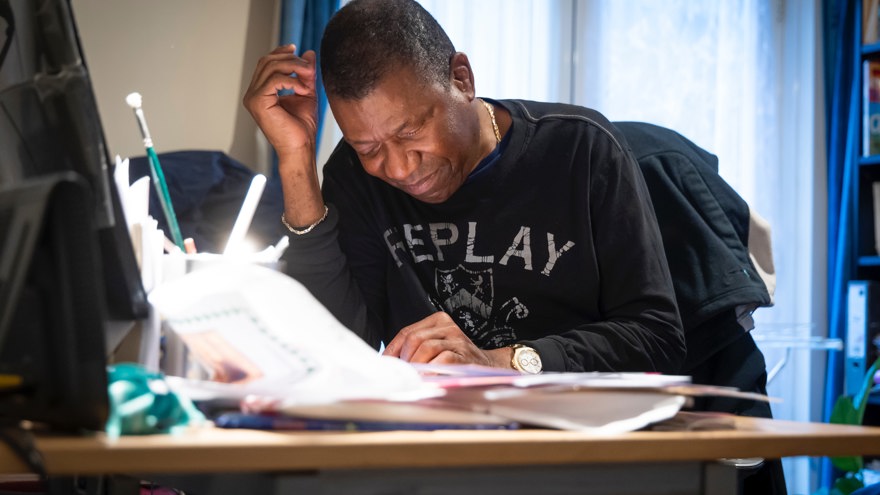What to do if you notice a change in your sight
It can be tempting to ignore changes in your vision, but it's important to get even seemingly minor issues checked out. By following these steps, you can look after your sight and get the help you need.

Introduction
Our sight will inevitably change as we age. Some changes may be because we need a different glasses prescription, while others may be a sign of an eye condition.
A simple eye examination can pick up the cause of the change, so it's wise to have regular eye check-ups. If you do have an eye condition, it can then be picked up early.
If you notice changes in your vision, book an eye examination as soon as possible. If your optometrist notices any signs of an eye condition, they’ll refer you to someone who can help. This might be an ophthalmologist at the hospital, a specialist optometrist, or your GP.
Be proactive
Having regular check-ups is the best way to look after your sight as this will make sure any small changes are picked up early.
Never be afraid to contact medical professionals to ask about changes to your eyes and your sight. It’s their job to help you.
Signs of changes in your vision
It can be difficult to notice changes in your sight, especially if the changes happen over a long period of time. You might notice changes in your everyday habits, like struggling to see the TV or read your text messages.
Any changes you notice in your vision should be checked. A sudden change will require immediate help, preferably on the same day, while for a more gradual change over weeks or months you should book in a check-up as soon as you can.
Seek medical advice
The first thing to do is seek medical advice from an optician, or your ophthalmologist if you have one.
You could also contact your GP or call 111 for advice on the best way to proceed in your local area.
When to take urgent action
A sudden change in your vision requires immediate action on the same day. Problems in need of urgent attention include:
- a sudden change in your vision
- loss of all or part of your vision in one or both eyes
- an accident involving your eyes
- suddenly seeing flashing lights or floaters
- double vision which comes on suddenly and is constant
- sudden or constant pain in your eyes
- suddenly becoming very sensitive to light
You can contact your GP or optometrist, or depending on your symptoms you may need to go to A&E.
Act quickly
A sudden change in your sight or an accident involving your eyes will require urgent medical attention, preferably on the same day.
It could be that the smallest perceived change turns out to be the first identifiable sign of something more substantial, which you’ve adapted to without realising.
Several chronic eye conditions can be controlled or slowed down if caught early enough, and, in some cases, vision loss can be reversed altogether with early diagnosis.
Read more
Getting registered as sight impaired
9 Oct 2023
An overview of the process of getting registered and the ways in which it can benefit you.

Talking books and audio publications
27 Oct 2023
How to access the thousands of books and publications available in audio format.

Seeing text more clearly on a screen
19 Oct 2023
Enhancing your screen reading experience across different devices, from computers to mobile phones.
